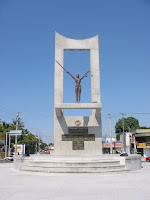Inequality as an "emergent property" of Political Economy Systems
Social scientists have debated how to define, measure, and tackle inequality. However, the traditional (aka linear) approach to the problem fails to capture the multidimensionality, polycentricity, and non-linearity that characterize complex phenomena. To contribute to this growing debate, I make a very brief case favouring a complexity-based approach with the following 7 counter-intuitive ideas: [1] Inequality is a fuzzy concept. There is absolute and relative inequality, inequality of outcomes and opportunities, and unfair and fair inequality. A complexity-based approach can help scholars and policymakers propose more accurate operationalizations of the concept. [2] Inequality is an interdisciplinary domain. It’s related to economics: income, assets, and wealth inequality. It's related to politics: access, voice, and exit. It’s related to sociology: status, group thinking, ownership, and mobility. It’s related to anthropology: values, beliefs, and norms. It’s relat...



